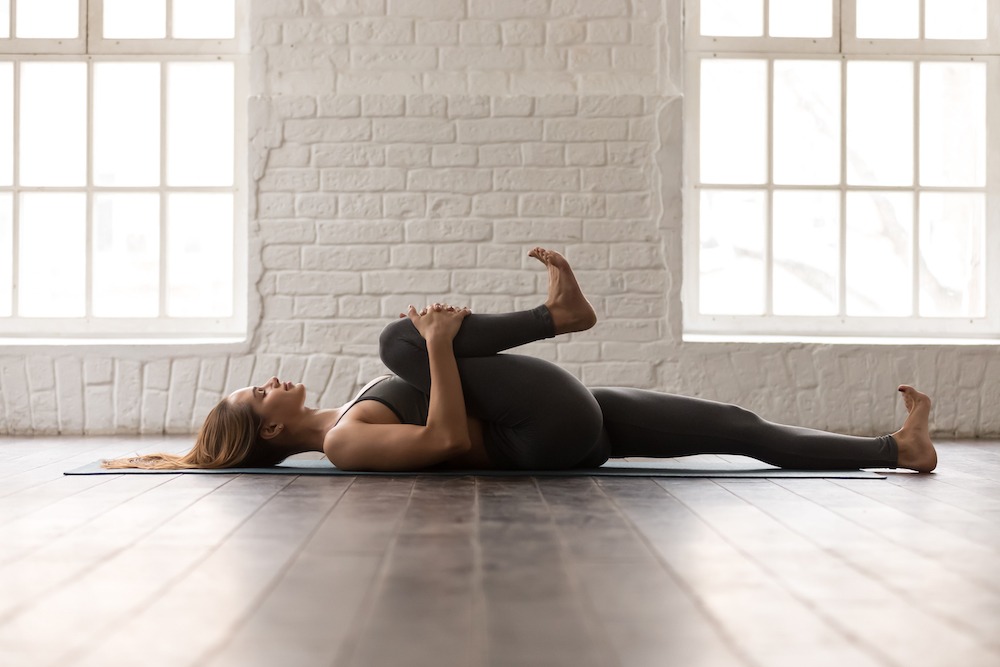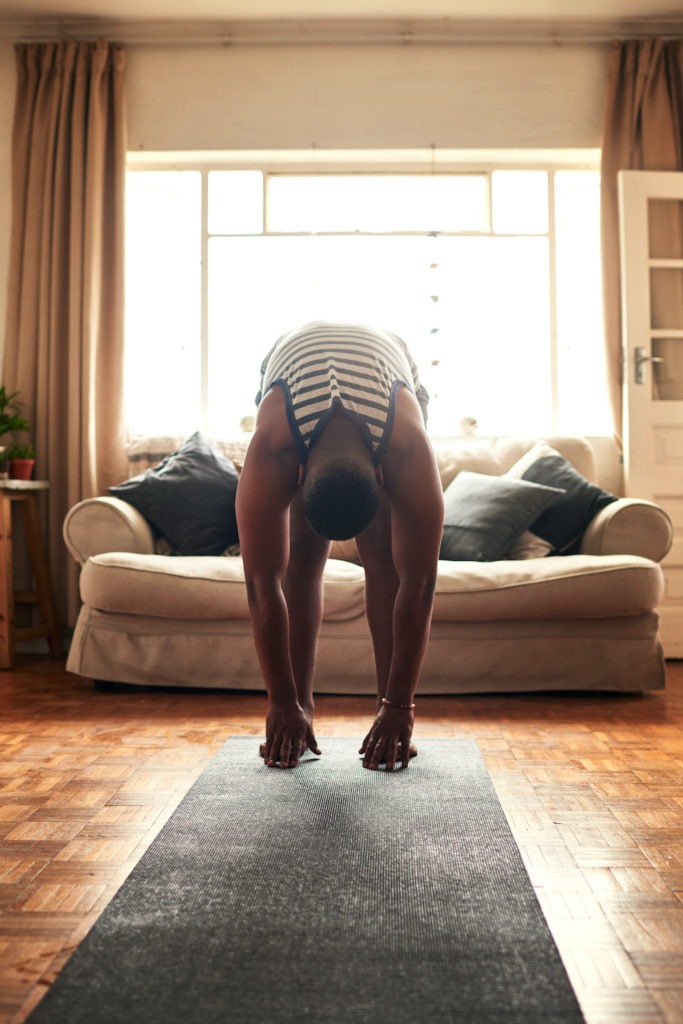Words: Cassandra Stern
Photos: fizkes, PeopleImages, vittaya25
Let’s face it: masonry is hard work. I had the opportunity to lift some CMU blocks at this year’s World of Concrete Convention during the Fastest Trowel Competition set-up, and it was no easy task! From lifting brick and block, bending and twisting to lay courses, reached and stirring to mix mortar, and reaching and pulling flashing, a bricklayer’s daily physical activity level is incredibly intense. Unfortunately, after many years of hard work and heavy manual labor, the stress will inevitably take a toll on the body. Older masons often experience painful joint and muscle damage as a result of repetitive motion injuries and chronic strains, which is especially unfortunate considering much of their suffering could have been alleviated or even prevented had they engaged in regular exercise.
Seems a little counterintuitive at first, right? After all, who wants to go the extra mile and go to the gym after a long hard day on the jobsite? The reality is that when it comes to a career as a brick mason, it’s important to focus on all aspects of your future, and that starts with how you care for the most important tool of all: your body. According to the U.S. Bureau of Labor Statistics (BLS) in 2019 sprains, strains, and tears accounted for approximately 35 incidents per 10,000 full-time workers, which are most commonly caused by overexertion and bodily reaction in approximately 33 incidents per 10,000 full-time workers.
Injuries like these are unfortunate and all too common on today’s jobsites, especially with the extra focus on worker safety in the workplace in recent years. While accidents are not always preventable, there are several relatively simple lifestyle changes that you can adopt to help better protect yourself from inadvertent jobsite injury. The next time a brick falls off a pallet, or you slip and lose your balance on a scaffold, you can feel confident that your body can withstand whatever is thrown at it by integrating even some of these easy tips into your day.
Before You Work
Stretching
Here’s one you can do the moment your feet hit the floor. Instead of hitting that snooze button a few times, get up and ready for the day with a few simple stretches. Tenders and brick masons can use their core muscles, legs, back, shoulders, arms, and even wrists and ankles in their daily work, which means a quick full-body stretch is a great way to start the morning.
Consider these five stretches as a way to start your routine, but feel free to add whatever simple motions or poses you feel best benefits your body. Remember- don’t overdo it! The purpose of the stretching is to wake up sleepy muscles, not push them to the limit first thing in the morning. Start slow, and work your way up until your whole body (and mind) are ready for the next part of your day.

Suggested Morning Stretches
- Chest and Shoulders:
- Sit or stand and interlace your hands together behind your back, arms straight and palms up.
- Lift your hands towards the ceiling, going only as far back as is comfortable.
- Hold for 15 to 30 seconds, repeating one to three times.
- Upper Back:
- Interlace your fingers in front of you with palms facing in and round your back like a cat.
- Make sure you engage your core in order to get the most benefit from this stretch.
- Hold for 15 to 30 seconds, repeating one to three times.
- Standing Hamstring Stretch
- Stand straight with your feet hip-width apart, bend your knees slightly, and hang your arms loosely at your sides.
- Breathe out as you bend forward at the hips, releasing your head and upper body toward the floor.
- Wrap your arms around the backs of your legs and hold anywhere from 45 seconds to two minutes.
- Gently bend your knees and roll up slowly to return to your standing position.

- Knee to Chest Stretch
- Lie flat on your back with both legs extended.
- Place your hands behind your right knee and pull it in towards your chest, keeping your left leg straight and your lower back pressed into the floor.
- Hold for 30 seconds to 2 minutes.
- Repeat with your left leg, one to three times.
- Tricep Stretch
- Raise your right arm above your head, then bend your elbow so that your forearm is behind your head and your hand is touching your upper back area.
- Use your left hand to gently press on your elbow until you feel a comfortable stretch in your right tricep.
- Hold for 15 to 30 seconds, repeating one to three times.
- Repeat with the left arm.
Fuel for Energy
After your stretching routine, your muscles will be primed and ready for fuel. In order to perform your best both mentally and physically on the jobsite, your body needs a healthy amount of proteins, carbs, and even fats. A fast-food breakfast may sometimes, unfortunately, be necessary, but even then it’s best to remember that your food is your fuel. Grains, fruits, vegetables, lean meats, milk, eggs, and even some dairy products will round out a healthy breakfast that will keep you feeling energized until lunch.
Eating foods full of the following vitamins and minerals are especially important when you’re powering up for a labor-intensive workday:
- Iron: Red blood cells need iron to carry oxygen to muscles, which is especially important for lifting heavy brick and block all day long. Try some spinach with your morning eggs and coffee for an extra iron boost- there’s a reason Popeye loved it so much!
- B Vitamins: There are eight B complex vitamins, including niacin, B6 and B12, and thiamin. B vitamins give you energy by helping to break down the carbohydrates in our food, and also help process fats and proteins. B12 is particularly important for career masons because like iron, it helps red blood cells efficiently carry oxygen and remove carbon dioxide from the body. Eggs and whole grains are excellent sources of B complex vitamins and are easy ways to incorporate into your morning routine.
- Vitamin D & Calcium: Most people know calcium is crucial for strong, healthy bones, but a ton of calcium won’t be beneficial without Vitamin D to aid in absorption. Although sun exposure is a great source of Vitamin D and many career masons get a healthy amount of sun exposure, it’s important to look to your diet as a source of these important nutrients as well. Thankfully, you can get both Vitamin D and calcium from most dairy products, so a nice glass of 2% milk with breakfast will be great for your bones.
- Magnesium: This mineral is important for a healthy heart- which is important for everyone! Additionally, magnesium also plays a role in cellular health, and a deficiency can often result in painful muscle cramps, which will definitely slow you down on the jobsite. Nuts, seeds, and whole grains are all great sources of magnesium and can be high in calories, but a bowl of oatmeal or yogurt with some granola on top makes for a great breakfast!
- Vitamin C: The immunity booster that everyone knows and loves, Vitamin C helps keep the whole body healthy and working how it should. While most people immediately think of oranges or other citrus fruits, broccoli, peppers, and kiwis are also great options to try and work into tomorrow’s breakfast!
When it comes to working as a career mason, a healthy morning routine is just another essential tool in your toolbelt. Just like mortar, a trowel, and a level, you need your body to be in top condition to do your best work every day. Now that you’re primed and ready to face the workday, you’ll be amazed at how energized, focused, and productive you are! Keep that momentum going with next week’s blog, where we discuss ways to keep your body healthy during the workday.
